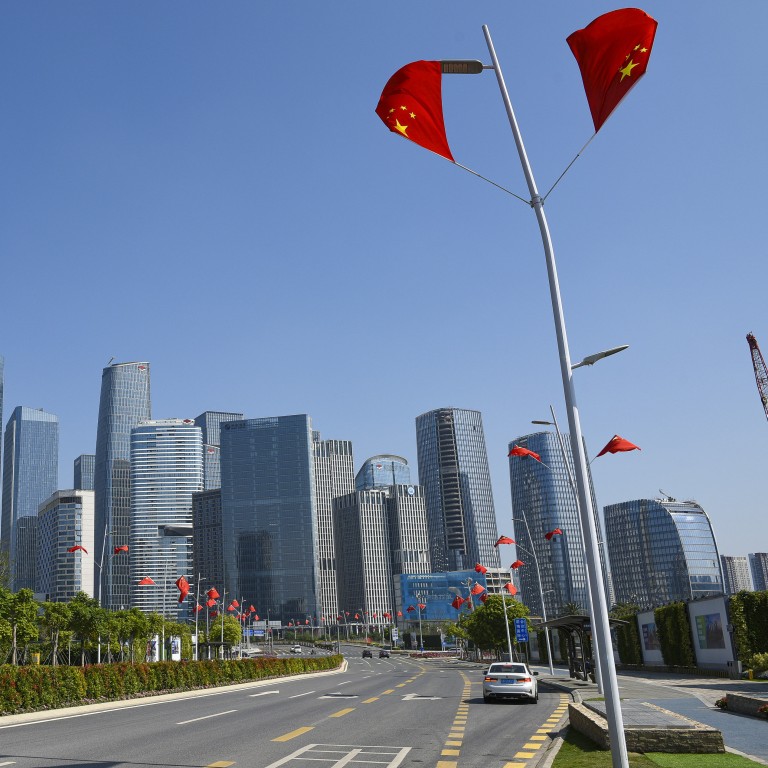Feel strongly about these letters, or any other aspects of the news? Share your views by emailing us your Letter to the Editor at [email protected]. Submissions should not exceed 400 words, and must include your full name and address, plus a phone number for verification. In addition to Hong Kong’s current finance-focused economic engine, it has been suggested that other strategic areas be developed, such as
innovation and technology, international higher education, and Chinese medicine. Thus, legal services should not be clustered in conventional business districts.
The Hong Kong government is planning a
rail link between the Hung Shui Kiu/Ha Tsuen new development area in Hong Kong’s northwest and
Qianhai in Shenzhen. The government is also exploring ways to enable wholly owned Hong Kong businesses in Qianhai to adopt Hong Kong law for their commercial contracts and to refer their disputes to Hong Kong for arbitration and resolution. Legislation on an outcome-related fee structure for arbitration is anticipated.
Given this, demand for quality legal services in different parts of Hong Kong – including dispute resolution services – may surge. The capacity and capability of legal services outside traditional central business districts should be enhanced, particularly in areas under the
Northern Metropolis development strategy. If additional infrastructure, facilities and training could be carefully considered and planned, the competitiveness of Hong Kong, both in the Greater Bay Area and internationally, could be further reinforced.
Hong Kong has a unique role as a two-way gateway, connecting mainland China and international markets. The importance of retaining lawyers with diversified experience in Hong Kong is apparent. In addition to the three jurisdictions where most foreign lawyers are registered as their home jurisdictions – currently the United States, mainland China, and England and Wales – we may attract more foreign lawyers from other jurisdictions, such as those encompassed by the
Belt and Road Initiative and participating countries of the
Regional Comprehensive Economic Partnership, to practise the law of their jurisdictions in Hong Kong. With a greater population of foreign lawyers, Hong Kong can further strengthen its role as the two-way gateway between mainland China and international markets.
In addition, possibilities could also be explored with these jurisdictions to enable Hong Kong solicitors to conduct reciprocal practice and to facilitate the qualification of Hong Kong solicitors to practise in these jurisdictions.
Careen H.Y. Wong, New Territories
Social media platforms must do more to prevent fraud
Since the beginning of the Covid-19 pandemic in early 2020, the number of people engaging in online shopping in Hong Kong has surged. During outbreaks, the government encouraged people to stay home as much as possible, prompting many to turn to and realise the benefits and convenience of online shopping. The city saw the rise of
home-grown e-commerce platforms.
Most reputable online shopping platforms have store deposits and third-party platform supervision systems to guarantee security. However, second-hand platforms lack these safety measures and instead most transactions on these platforms rely on the trust of both parties, potentially exposing them to hidden risks. There were over
14,000 online fraud cases recorded between January and August this year involving more than HK$2 billion (US$254.8 million) in losses.
In Hong Kong, major second-hand online trading platforms include Facebook, Instagram and Carousell. While the latter is a specialised second-hand trading platform, the other two are just social networking sites with huge user bases. Second-hand trading is not their main business.
That these transactions are usually conducted in peer-to-peer mode creates great opportunities for fraudsters. They often promise to deliver the goods by post and ask consumers to use the Faster Payment System, stored-value cards or bank transfers to pay in advance, then block the buyer’s account after receiving the payment. When many people begin to complain, they change their username.
Preventing online scams is no easy task. Trying to monitor every trading account or conversation is clearly impractical. Therefore, second-hand trading platforms have an obligation to cooperate with the relevant government departments. Social media sites that provide second-hand trading platforms must improve the corresponding support facilities to protect the rights and interests of consumers.
These should include, but are not limited to, posting platform transaction notices to increase consumers’ awareness, requiring sellers’ accounts to undergo real-name authentication, providing transaction complaint channels to reduce complaint costs and assisting police and government investigations when necessary.
Wang Jinbing, North Point


